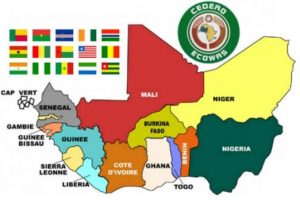The Conference of Civil Societies and Centre for Civil-Military Cooperation (CIMICO) has expressed concern over the withdrawal of Niger, Mali and Burkina Faso from Economic Community of West Africa States (ECOWAS).
Listing the implications of the withdrawal, CIMICO noted that it will disrupt intelligence sharing, regional counterterrorism efforts, and coordinated security initiatives such as the Multinational Joint Task Force (MNJTF).
The group said the decision to withdraw carries profound security, economic, and humanitarian implications for the people of the region.
Addressing a press conference in Abuja, weekend, the coordinator of CIMICO, Dr. Adams Otakwu, said the departure may contribute to governance challenges, potentially creating unaccountable regimes and further setbacks to democratic stability.
He said: “We express deep concern over the formal withdrawal of Mali, Burkina Faso, and Niger from the Economic Community of West African States (ECOWAS). This decision carries profound security, economic, and humanitarian implications for the people of the region.
“The three countries are frontline states in the fight against terrorism, and their withdrawal disrupts intelligence sharing, regional counterterrorism efforts, and coordinated security initiatives such as the Multinational Joint Task Force (MNJTF).
“A fragmented security architecture risks exposing these states—and the wider West African region—to heightened threats of violent extremism, migrant trade, and political disorder.
“Moreover, the departure may contribute to governance challenges, potentially creating unaccountable regimes and further setbacks to democratic stability.
“The economic repercussions of this withdrawal cannot be overlooked. As ECOWAS members, these countries benefited from a harmonised trade system, including the Common External Tariff and preferential access to the African Continental Free Trade Area (AfCFTA).
“Their exit introduces economic uncertainty, with potential increases in tariffs, inflation, and disruptions to cross-border trade and financial services. Additionally, their standing in the global financial system could be negatively impacted, given their status on the Financial Action Task Force (FATF) grey list. Without ECOWAS membership, they risk exclusion from critical financial regulatory frameworks, affecting investment inflows, economic stability, and long-term development prospects.”
